This past Sunday was Halloween – an opportunity for kids to trick or treat, eat candy, goblins, pumpkins, all that good stuff. As adults, we look at Halloween as an opportunity to dress up and to take on a different persona.
Another thing about Halloween are horror films. I remember this one particular film called Watcher in the Woods, an ‘80s film.
It was about a young girl who moved into this big home in England. Her family rented the main house from Betty Davis who played the owner.
After living there for a while, the young girl started experiencing these scary events like lights would go off inexplicably, and she’d hear odd sounds. Then she started seeing this blindfolded young girl in the mirror who was always reaching out, mouthing ‘help me.’
After seeing this movie, due to my active imagination, I’d have to put on the lights before walking down dark hallways and would see this figure in my own mirror! So it definitely freaked me out for a while.
An emotion that is elicited during this season is fear. We watch horror films and go to haunted houses to get scared.
And yet, fear underlies a lot of our other emotions. When someone acts out in anger, there’s usually fear underneath. A simple example is when your child runs out into traffic, and you grab your child and yell, “Don’t ever do that!” The outburst looks like anger, but clearly, the underlying emotion is fear – fear that your child will get hurt.
I believe that fear if understood is a helpful emotion to tap into in order to raise self-awareness.
I want to reference a famous Joseph Campbell quote,
“The cave you fear to enter holds the treasure you seek.”
What does this quote mean from a personal development perspective?
In order to seek the treasure – to transform to the best version of yourself – you have to walk into the cave that you fear. You’ll have to do that inner work you don’t want to do. Look at the things you’ve been avoiding.
The longest relationship we have is with ourselves. We’re born alone, and we die alone.
How do we deepen that relationship with ourselves to ensure that we have an abundance of self-love, self-compassion, and self-confidence?
If we take the time to nourish and resource ourselves, then we’re showing ourselves self-compassion, and yet we often neglect our own wellbeing.
Last week I spoke about how I burned out from my first leadership role and how I wish I did things differently because I operated in a reactive way.
That was the start of my healing journey to figure out if I wanted to return to difference-making work, how could I do the work differently?
I wanted to understand why I operated that way – that journey of burnout and stress.
It shows up differently for us all.
The way it showed up for me was doing the work myself, feeling isolated, and feeling like I couldn’t ask for help. I believed that it was a weakness to ask for help. If someone said, “Hey, can you do X?” I’d immediately agree because I thought it’d look weak if I said no.
It was all on me.
And once I started this inner work journey, I had to explore the narrative that I ‘had to do it alone’ because that narrative ultimately caused me to sour on a job that I loved. I didn’t know what was coming up for me, and I didn’t have the conversations that should have been had. So I quit and left. I definitely have regrets about that.
Current studies show that we operate 90 to 95% unconsciously. Take that in for a minute.
We as human beings are going through life on an unconscious level. It shows up in our habits, our patterns, our emotions, our beliefs, our values, our biases.
There’s this prayer I’ve been saying since childhood. Part of the translation is, ‘let the unreal be the real, lead you from darkness to light.’ I didn’t have an appreciation for the meaning as a child, but now, I’m realizing that it’s about bringing the unconscious to the conscious, which is a major driver in personal development.
To analyze what we’re telling ourselves and to question the truthfulness of what we’re telling ourselves.
I worked with a coach when I started questioning this narrative of having to do it alone because ultimately it was my own thinking that got me to this point of exhaustion and burnout. So I needed another person to hold space and be able to see my blind spots.
Especially if I wanted to change.
And of course, as these things go, it starts with childhood. Where did I get the story of not being able to ask for help?
And once I started this journey, it was illuminated for me that it likely started when I was 9 years old. My parents and I flew to Virginia from my home state of Tennessee. We visited a doctor, and up to that point, I was used to visiting doctors. However, this time was different.
My parents looked at me, and they said, ‘okay, tomorrow you’re having surgery.’
I had no say in it – no heads up. It was just stated very matter of fact – ‘you’re having surgery tomorrow.’
And I also remember being told throughout my childhood that I should be grateful that we had the resources to get the medical care I needed.
I have a lot of grace towards my parents. This isn’t about blaming them because they were operating in the best and loving way that they knew.
I didn’t complain – I was that charming kid to the nurses. I used humor often to get through tough situations. I deflected a lot. I didn’t ever share my true feelings about the situation.
So that’s where I got the story that I just got to do it on my own because I can’t ask for help.
And this story ultimately did NOT serve me. And more importantly, this belief is NOT true.
The belief that I have to do it on my own is not true.
How many beliefs are you operating in that you take for granted is true?
That’s your unconscious speaking – our operating system. Our operating system has all these stories we tell ourselves.
So let’s start questioning these stories. There are the facts – something happened. There’s the story, the emotions, that we attach to it. And then there’s the meaning we derive from it – the belief.
By transforming the story around the facts, I was able to transform the meaning – I was able to make peace with that story because for the longest time, whenever memories from that period in my life would come up, I’d squash it. I’d push it aside because it was negative, and I didn’t want to look at it.
Once I really started going inward and “going into that cave,” it was making peace with that story. To actually look at that child.
I have a lot of love for that kid – a lot of compassion. She got me through rough periods with humor, with grace and kindness. I no longer push her away when memories come up.
Now, I believe that there’s strength in asking for help. There’s beauty in being vulnerable in that you’re able to increase the depth of your relationships. It’s safe to express my emotions, whatever they may be, without feeling embarrassed. And I can choose to not isolate and instead be authentic to what was coming up for me.
And so this exercise of ‘seeking the treasure’ was so powerful because it helped me face my fears and to operate differently.
This transformation of the meaning showed up in my leadership roles afterward.
I showed it differently in that I knew how to draw boundaries. I knew how to say no and be open about my capacity. And I showed up more authentically.
The past has the power to always be in the present unless we transform the meaning.
My wish for you is to be able to move through your life with self-compassion – to question those operating beliefs that no longer serve you.
As always, be gentle and kind to yourself.
Shalini

